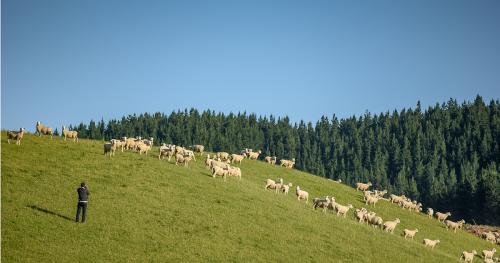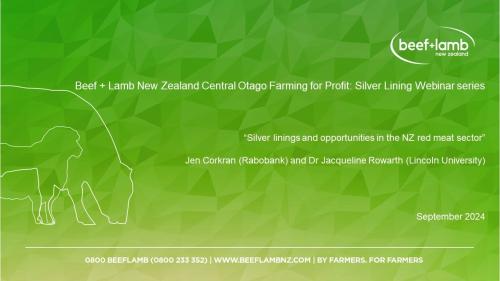Search results
Displaying 471 - 480 results of 995
- Resource book… through proactive costeffective health management health review process health review … mating performance scanning percentage dry percentage 1 ewes 2 twotooths 3 hoggets … divided number ewes presented breeding dry number ewes lamb divided number ewes …
- NewsTen to eight weeks out from mating is the ideal time for rams to be brought in for an annual health check and for shearing or crutching; particularly ensuring wool is removed from around the …

- News… techniques, and implementing effective waste management systems. Food security, warm homes …

- News… forage crops to continue to implement good management practices. …

- News… are for addressing some of the Resource Management Act (RMA) regulations that are …

- Factsheet… shed used inform decisionmaking about management injured animals you should complete … protocol poster factsheet mitigating risk management factors help mitigate risk include … hoggets weaned lambs more than 18 hours dry sheep make them easier safer handle …
- Industry data… decreased 21 percentage points 1361 per cent dry conditions late summer autumn affected … lamb losses farmers reported lower rate dry ewes than usual both regions twinning … response geographically different climates management response farmers ensure ewes …
- Industry data… has been extreme forecasted exception very dry conditions top south island autumn rainfall critical dry regions improve feed levels midseason … margins niño weather pattern contributing dry conditions farms across top south island …
- Video… high-cost environment ’, for on-farm business management advice in tight times. Recorded 2 …
- NewsThroughout summer, Beef + Lamb New Zealand will be alerting farmers to changes in regional Facial Eczema spore counts through weekly published graphs and a free text message …

